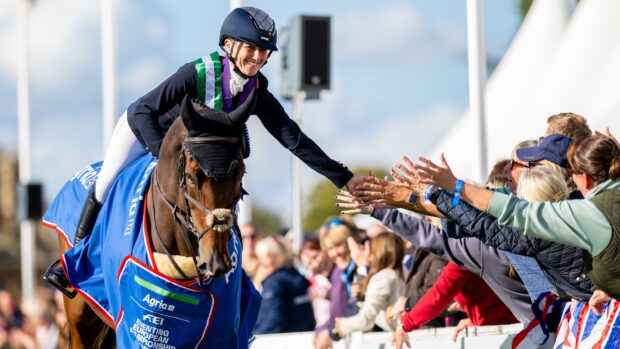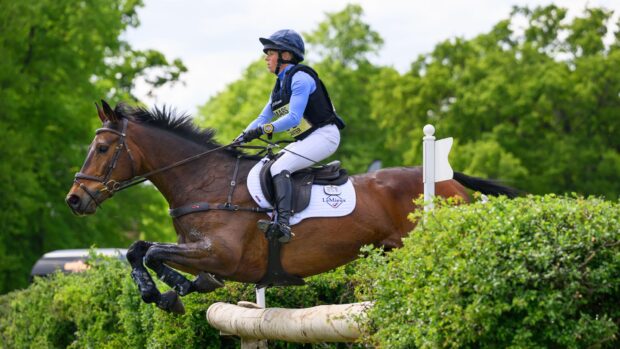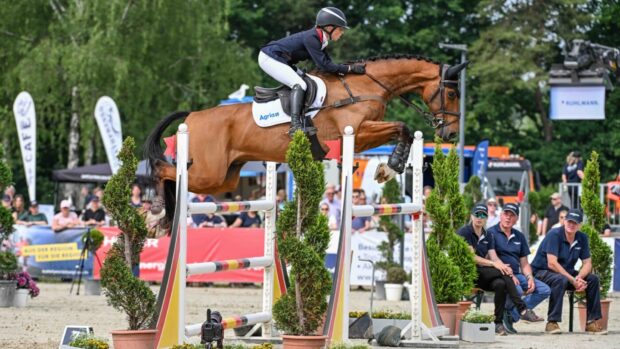By Elizabeth Grey
When you’re competing at eventing it feels more like a way of life than a hobby, even when you’re in the lower level classes. But, as with many things, careers outside the equine world can get in the way of competing as you get older. Suddenly travelling around the country to competitions every weekend isn’t so easy anymore and when you do go to an event, it’s typically to watch.
If you’ve spent years of your life focusing your time and energy on eventing, this can leave you feeling a bit underwhelmed. Perhaps it would’ve been better to spend your teenage years devoted to a hobby easier to squeeze into a two-week holiday, like skiing.
This is certainly how I felt after a blossoming London-based career finally squeezed eventing out of my schedule. But as my work life progressed, I realised that my years spent immersed in eventing had nurtured qualities and attitudes within me that gave me a real advantage in achieving my goals.
Grace and composure under pressure
Being able to stay composed and graceful when you’re so nervous that your stomach is churning and your mind is racing is an invaluable skill.
Recent neuroscience research shows that performing under pressure isn’t an inherent trait, it’s something that can be learnt. After your first couple of horse trials you start to realise that the butterflies and pounding heart aren’t a sign that anything’s going to go wrong, they’re simply a physiological response to stress.
You’re probably not going to fall off or demolish all the jumps, and even if you do, you come to realise that you’ll survive. This gives you the ability to master your nerves, put them aside, and perform as well as you can.
So when you come to give a big presentation, interview for your ideal job or just deal with those unexpected work crises, you’re able to focus on doing what you need to do, instead of panicking. That level of poise can quickly get you noticed.
All is not lost after one mistake
Or even two or three. It’s incredibly infuriating when you realise that you’ve dropped points during an event, especially when it’s in the areas you know you and your horse can perform well in.
It’s tempting to get sucked into berating yourself or assuming you’ve already lost the chance to place, losing focus on the rest of your round. With time I realised that I was more likely to fail due to the subsequent loss of concentration.
The time for reflection on mistakes comes after the competition, not when you’re still riding.
Not getting bogged down or flustered by minor mishaps stops you from getting discouraged in the early stages of a project. You know that you just need to put it to one side and keep going, then look back later and work out how you could improve.
Adapt to the needs of others for best performance
The drop jump poses a major challenge for eventers. It’s not only technically tricky, but a key component is the horse trusting the rider. You need to learn how to sit during the jump and how to adjust the reins, and you need to be careful not to over-practice.
This combination of factors means that, perhaps more than with any other part of eventing, you need to adapt to your horse’s needs by building up trust and finding practice strategies that work for your mount.
When it comes to working in teams, or managing people, being able adapt how you work towards your goals around the needs, strengths and weakness of your team gives you a real advantage. You already know how to help build confidence and change the way you interact with people, to motivate and encourage them.
Dealing with the unexpected
Sometimes when you’re jumping in competition, despite your best preparation, you and your horse can find an obstacle that differs from your expectations. This can be particularly true with ditch-rail-ditch combinations and bullfinch jumps.
You have to be ready to adapt while you’re jumping, as you discover those little adjustments that course designers put in to test you and your mount.
Outside the eventing arena, being able to react to the unexpected and adapt never stops coming in useful. It can be helpful when the goal of a project changes half-way through, or if you need to deal with a conflict that blows up out of nowhere.
But being comfortable adapting to changes means that it’s easy to revisit goals and tweak them according to new circumstances, key to achieving what you want and need to, rather than blindly keeping going pursuing a goal that was relevant six months ago, but isn’t a good fit now.
I really do feel that my background in eventing has helped me with many different elements of my life. What are your experiences?
Elizabeth Grey is a UK writer on finance, careers, education and London. Find her on twitter @ejgrey



